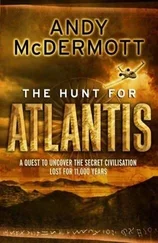I like it. Yeah, I like it, but Dan Foster won't like losing one of our own boats." "I'd say it's worth the trade." "So would I," Harris agreed. "But they're not my boats. After we do this, where do we hide her - if we get her?" "General, there are some nice places right here on the Chesapeake Bay. There's a deep spot on the York River and another on the Patuxent, both owned by the navy, both marked Keep Out on the charts. Nice thing about subs, they're supposed to be invisible. You just find a deep enough spot and flood your tanks. That's temporary, of course. For a more permanent spot, maybe Truk or Kwajalein in the Pacific. Nice and far from any place." "And the Soviets would never notice the presence of a sub tender and three hundred submarine technicians there all of a sudden? Besides, those islands don't really belong to us anymore, remember?" Tyler hadn't expected this man to be a dummy. "So, what if they do find out in a few months? What will they do, announce it to the whole world? I don't think so. By that time we'll have all the information we want, and we can always produce the defecting officers in a nice news conference. How would that look for them? Anyway, it figures that after we've had her for a while, we'll break her up. The reactor'll go to Idaho for tests. The missiles and warheads will get taken off. The electronics gear will be taken to California for testing, and the CIA, NSA, and navy will have gunfights over the crypto gear. The stripped hulk will be taken to a nice deep spot and scuttled. No evidence. We don't have to keep this a secret forever, just for a few months." Harris set his cup down. "You'll have to forgive me for playing devil's advocate. I see you've thought this out. Fine, I think it's worth a hard look. It means coordinating a lot of hardware, but it doesn't really interfere with what we're already doing. Okay, you have my vote." The Joint Chiefs arrived three minutes later. Tyler had never seen so many stars in one room. "You wanted to see all of us, Eddie?" Hilton asked. "Yes, General. This is Dr. Skip Tyler." Admiral Foster came over first to take his hand. "You got us that performance data on Red October that we were just briefed on. Good work, Commander." "Dr. Tyler thinks we should hold onto her if we get her," Harris said deadpan. "And he thinks he has a way we can do it." "We already thought of killing the crew," Commandant Maxwell said. "The president won't let us." "Gentlemen, what if I told you that there was a way to send the crewmen home without them knowing that we have her? That's the issue, right? We have to send the crewmen back to Mother Russia. I say there's a way to do that, and the remaining question is where to hide her." "We're listening," Hilton said suspiciously. "Well, sir, we'll have to move quickly to get everything in place. We'll need Avalon from the West Coast. Mystic is already aboard the Pigeon in Charleston. We need both of them, and we need an old boomer of our own that we can afford to do without. That's the hardware. The real trick, however, is the timing - and we have to find her. That may be the hardest part." "Maybe not," Foster said. "Admiral Gallery reported this morning that Dallas may be onto her. Her report dovetails nicely with your engineering model. We'll know more in a few days. Go on." Tyler explained. It took ten minutes since he had to answer questions and use the chart to diagram time and space constraints. When he was finished, General Barnes was at the phone calling the commander of the Military Airlift Command. Foster left the room to call Norfolk, and Hilton was on his way to the White House. The Red October Except for those on watch, every officer was in the wardroom. Several pots of tea were on the table, all untouched, and again the door was locked. "Comrades," Petrov reported, "the second set of badges was contaminated, worse than the first." Ramius noted that Petrov was rattled. It wasn't the first set of badges, or the second. It was the third and fourth since sailing. He had chosen his ship's doctor well. "Bad badges," Melekhin growled. "Some bastard of a trickster in Severomorsk - or perhaps an imperialist spy playing a typical enemy trick on us. When they catch the son of a bitch I will shoot him myself - whoever he is! This sort of thing is treasonous!" "Regulations require that I report this," Petrov noted. "Even though the instruments show safe levels." "Your adherence to the rules is noted, Comrade Doctor. You have acted correctly," Ramius said. "And now regulations stipulate that we make yet another check. Melekhin, I want you and Borodin to do it personally. First check the radiation instruments themselves. If they are working properly, we will be certain that the badges are defective - or have been tampered with. If so, my report on this incident will demand someone's head." It was not unknown for drunken shipyard workers to be sent to the gulag. "Comrades, in my opinion there is nothing at all to concern us. If there were a leak, Comrade Melekhin would have discovered it days ago. So. We all have work to do." They were all back in the wardroom half an hour later. Passing crewmen noticed this, and already the whispering started. "Comrades," Melekhin announced, "we have a major problem." The officers, especially the younger ones, looked a little pale. On the table was a Geiger counter stripped into a score of small parts. Next to it was a radiation detector taken off the reactor room bulkhead, its inspection cover removed. "Sabotage," Melekhin hissed. It was a word fearsome enough to make any Soviet citizen shudder. The room went deathly still, and Ramius noted that Svyadov was holding his face under rigid control. "Comrades, mechanically speaking these instruments are quite simple. As you know, this counter has ten different settings. We can choose from ten sensitivity ranges, using the same instrument to detect a minor leak or to quantify a major one. We do that by dialing this selector, which engages one of ten electrical resistors of increasing value. A child could design this, or maintain and repair it." The chief engineer tapped the underside of the selector dial. "In this case the proper resistors have been clipped off, and new ones soldered on. Settings one to eight have the same impedance value. All of our counters were inspected by the same dockyard technician three days before we sailed. Here is his inspection sheet." Melekhin tossed it on the table contemptuously. "Either he or another spy sabotaged this and all the other counters I've looked at. It would have taken a skilled man no more than an hour. In the case of this instrument." The engineer turned the fixed detector over. "You see that the electrical parts have been disconnected, except for the test circuit, which was rewired. Borodin and I removed this from the forward bulkhead. This is skilled work; whoever did this is no amateur. I believe that an imperialist agent has sabotaged our ship. First he disabled our radiation monitor instruments, then he probably arranged a low-level leak in our hot piping. It would appear, comrades, that Comrade Petrov was correct. We may have a leak. My apologies, Doctor." Petrov nodded jerkily. Compliments like this he could easily forego. 'Total exposure, Comrade Petrov?" Ramius asked. "The greatest is for the enginemen, of course. The maximum is fifty rads for Comrades Melekhin and Svyadov. The other engine crewmen run from twenty to forty-five rads, and the cumulative exposure drops rapidly as one moves forward. The torpedomen have only five rads or so, mostly less. The officers exclusive of engineers run from ten to twenty-five." Petrov paused, telling himself to be more positive. "Comrades, these are not lethal doses. In fact, one can tolerate a dose of up to a hundred rads without any near-term physiological effects, and one can survive several hundred. We do face a serious problem here, but it is not yet a life-threatening emergency.
Читать дальше











